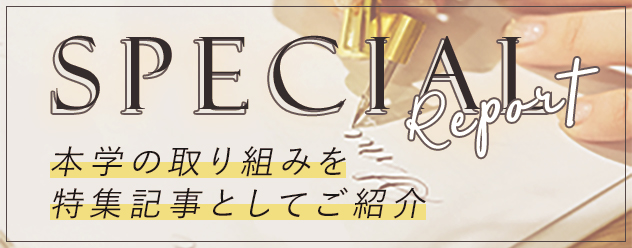
Contribute to crisis management in Tokyo, the capital city ahead of the Olympic and Paralympic Games
Teikyo University's Itabashi Campus is home to School of Medicine, School of Faculty of Pharmaceutical Sciences, Faculty of Medical Technology, and the School of School of Medicine Hospital, where cutting-edge basic and clinical research activities are systematically conducted alongside Practical learning education aimed at producing outstanding medical personnel. With large-scale events such as the Olympic and Paralympic Games approaching in Tokyo, the capital of Japan, the medical faculties are working together to tackle the research topic of "crisis management," contributing to the creation of a safe and secure society, recognizing the need for further enhancement of crisis management measures in preparation for emergencies.
project overview
Teikyo University has three medical faculties and a disaster Trauma and Resuscitation Center School of Medicine center, all located on the same campus, and in addition to Practical learning education aimed at producing excellent medical personnel, cutting-edge basic and clinical research activities are systematically carried out. Utilizing this strength, under the leadership of President, Headquarters has set a future vision of forming a research foundation that will contribute to improving the quality and value of people's lives, and has decided to tackle the urgent and major social issue of "crisis management" as a university-wide initiative.
The project will be carried out in three stages. In the first stage, the focus will be on crisis management in Tokyo, the capital of Japan, ahead of the hosting of the Olympic and Paralympic Games in 2020. Medical faculties will work together to conduct basic and applied research on crisis response in large cities, from drug poisoning and pandemics to bacterial and viral terrorism. Research data and educational programs will also be developed based on methods for instantly analyzing samples of drugs, poisons, and microorganisms brought into Trauma and Resuscitation Center, establishing a system for crisis preparedness.
In the second and third stages, we aim to not only contribute to local emergency medical care (drug and poisoning accidents, infectious diseases, etc.) that takes into account the regional characteristics of Tokyo, but also to establish a wide-ranging "crisis management" system that can be used on a global level, covering NBC (nuclear, biological, and chemical), zoning in the event of a disaster, cyberterrorism, and more.

Project system
Taking advantage of the strengths of Teikyo University's Itabashi Campus, where medical departments are concentrated, we will carry out basic and applied research on "crisis management" through close and organic collaboration.
Emergency Center
[Tokyo Metropolitan Area Disaster Base Hospital]
(School of Medicine University Hospital, Trauma and Resuscitation Center)
■ Research and education (resuscitation, intensive care)
Drug and Toxicology Analysis Center
(Faculty Faculty of Pharmaceutical Sciences and Faculty of Medical Technology)
■Research (drug and toxicological analysis) ■Development of analytical technology
Pandemic Infectious Disease Analysis Laboratory
(School of Medicine, Institute for Infectious Disease Control in Asia)
■ Methods for identifying viruses ■ Methods for identifying bacteria
■Development of an instantaneous genetic system ■International collaboration
Project planning
■ Stage 1: Contributing to crisis management in Tokyo ahead of the Olympic and Paralympic Games
As the first stage, we aim to contribute to crisis management in Tokyo, the capital of Japan, ahead of the hosting of the Olympic and Paralympic Games in 2020. We will bring to fruition basic and applied research across medical faculties as "Practical learning" that can be applied to real-world social issues (drug and poison analysis, pandemic analysis and response planning, practical training programs, and the completion of specific emergency treatment scenarios in the event of a disaster, etc.), and contribute to society by helping to prevent infectious disease pandemics and drug and poison poisoning and abuse, which are feared on a global level.
■ Second stage: Promotion of university-wide crisis management research not only in medical faculties but also in social and science and engineering faculties
As the second stage, we are planning to expand the scope of research and to consider measures for social turmoil such as pandemics by participating in the business of social and science and engineering faculties. We will develop it into an interdisciplinary study that builds evidence from an international perspective on crisis management in the metropolitan Tokyo and neighboring prefectures.
■ Third stage: Promote crisis management research from a global perspective and make recommendations for creating a safe and secure society.
As the third stage, we will build a system that can provide high-level research by crisis management experts and researchers and the results to students. We will promote crisis management research from a global perspective by accumulating exchanges and information sharing on international joint research and systems centered on Asia. In addition, we will actively disseminate information and raise awareness about safety and security, and contribute to the local community and society.
Progress / evaluation






